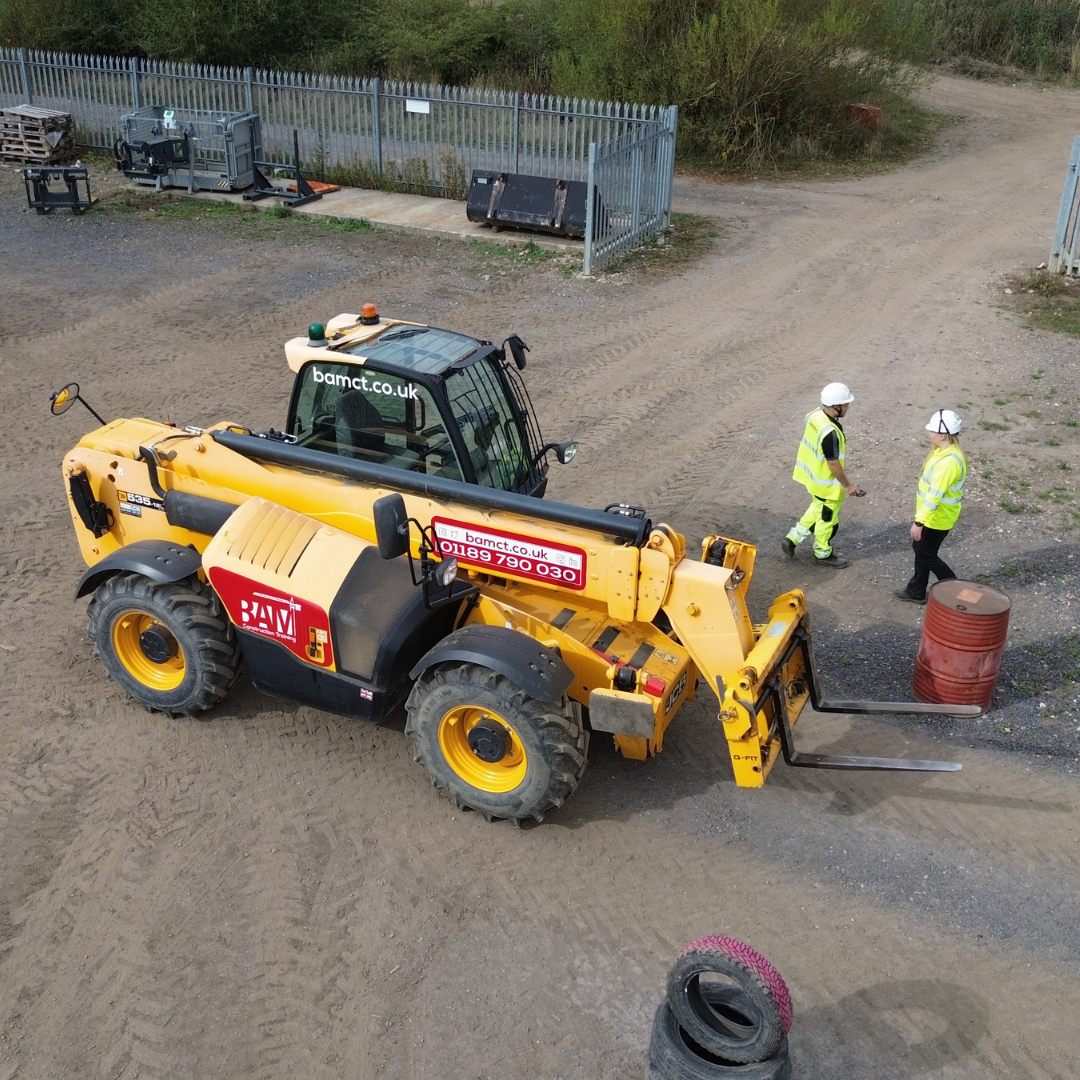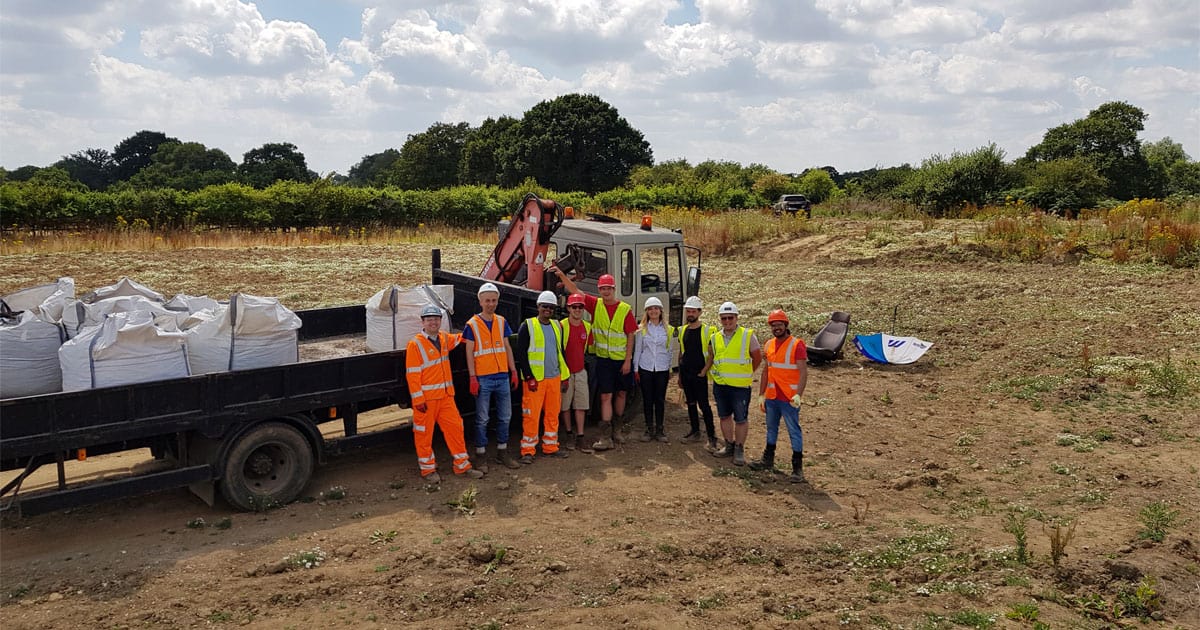Telehandler training is one of the most popular categories in the UK’s construction training industry. In this article we will provide you with an informative overview of the telehandler training options available to you, including a summary of what’s involved, costs, and the qualifications you will gain which you’ll most likely use to seek employment after your telehandler training is complete.
1. Telehandler Training – The CPCS route
CPCS is the most recognized construction plant operator qualification in the UK. The telehandler training course is designed to provide you with sufficient knowledge that enables you to carry out your duty as a telehandler operator safely, so that you can pass the theory and practical assessments that the telehandler training course entails.
Theory Test for CPCS Telehandler
The first day of the telehandler training course is theory training in the classroom. You will be required to learn the answers to 72 questions that will be asked during your verbal theory test, which is conducted 1on1 with a CPCS qualified tester and recorded for monitoring purposes on the last day of the course.
The theory test includes basic health and safety questions like ‘Name three ways in which an operator can minimise their impact upon the environment whilst using the machine’, as well as category specific questions like ‘If setting up to lift and move loads in a pedestrianised area, state three factors that need to be taken into account’.
A full list of theory questions for A17 telehandler can be found here. Please note that the answers are not provided and test centres are forbidden to release the answers to these questions – which is why day one of the course is theory training.
Practical Test for CPCS Telehandler
The second and third days of telehandler training are practical based operating the machine. You will be taught all the elements that the CPCS practical test involves, including completing all the necessary pre-start checks, travelling up/down slopes and through chicanes, changing attachments, high lifting loads onto a scaffold tower and then retrieving them, stacking and destacking loads vertically onto a lorry, lifting loads and placing them on the ground, passing through restrictions, undercutting loads, and completing all shut down procedures.
You will have a time limit of 2 hours during your practical test, which will take place on the last day of the course, to complete the test. The maximum amount of penalties you can get is 8 – examples of penalties include incorrect mounting/dismounting, full observations whilst travelling, appropriate travel speed matched to ground conditions, boom kept fully retracted, and all loads placed at the given points within the set tolerance.
A mandatory is classed as a failure and your test will be stopped if the mandatory is a health and safety hazard. Some examples of mandatories include no seatbelt, load not secure on forks, opposite movement on hill start, not clearing restrictions and hazards, machine instability, loads left un-safe and insecure, parking break not applied and neutral not selected before lifting loads, or damaging pallets during operations.
Summary for CPCS Telehandler
Although it may seem like a lot to learn, with the right telehandler training and an experienced instructor, it’s possible to become a fully qualified CPCS telehandler operator in just four days if you attend one of our novice courses, which we run bi-monthly – we have a 92% practical pass rate to prove it. CPCS is the route you want to take to ensure all construction sites accept your qualification as a telehandler operator.
Course Name: CPCS A17 Telehandler (all sizes exc slew)
Cost: £975+vat (£1,170 inc vat)
Duration: 4 Days
Course Schedule: Theory Training (Day 1), Practical Training (Day 2), Practical Training (Day 3) & Theory and Practical Assessments (Day 4).
Qualification: CPCS Trained Operator Red Card
Requirements: You must have a valid health, safety and environment test for operatives (at a minimum) passed within 2 years.
2. Telehandler Training – The NPORS route
NPORS is the second most recognised construction plant operator qualification in the UK. The NPORS N010 Rough Terrain Telescopic Handler is the equivalent category to CPCS’ A17 Telehandler (all sizes exc slew) category. Unlike CPCS, there are only 25 questions for the NPORS telehandler theory test which is a written assessment – 20 of these questions are multiple choice!
If you have experience operating a telehandler but no qualification, you may be eligible for a one day experienced worker assessment. To check your eligibility for this one day assessment, you are required to fill out a profiling sheet that includes employment and work experience details. Upon returning this profile sheet to us, our NPORS tester will determine your eligibility for the route. If you have no experience operating a telehandler, NPORS recommend that a novice course should take place over 5 days.
Unlike CPCS, NPORS courses are not scheduled – they are setup on demand. Why? The demand for NPORS courses are nowhere near as high as CPCS courses around London & South-East England. NPORS courses are charged at a standard day rate of £595+vat (£714 inc vat), but there are some benefits:
- Flexibility: Although a novice course has a recommended duration of 5 days, if you don’t carry out high lift tasks on-site, for example, you could do the course over 4 days and skip the high lift element. However, it is important to note that your card will specify that you are not covered for the high lift. This applies to other elements of the assessment too – travelling slopes, lorry loading, etc.
- Value: You can have up to 4 operatives on the one day experienced worker assessment which means the day rate of £595+vat is great value for money (that is, if you have 4 experienced operatives that require the qualification).
- Location: NPORS assessments do not need to take place at an accredited centre – they can take place on your site. Therefore, if you’re an employer looking to get up to 4 operatives trained up in one go, NPORS gives you the flexibility for that to be carried out on your site.
Summary for NPORS Telehandler
NPORS is a very flexible way to gain a construction plant operator qualification in the UK. Unlike the CPCS route, the theory test only consists of 25 questions (unlike CPCS’ 72 questions) and 20 of these questions are multiple choice!
It is important to note that not all construction sites will accept an NPORS qualification – it seems like the further away you get from London, the more acceptable NPORS becomes. Therefore, if you’re looking to become a qualified telehandler operator prior to finding any employment, we highly recommend choosing CPCS over NPORS, or contacting a potential employer first to find out whether they will accept an NPORS qualification for the role of telehandler operator.
Cost: £595+vat (£714 inc vat) per day
Duration: 1-5 Days (Flexible depending on experience)
Qualification: NPORS Operator Card
3. Telehandler Training – The In-House route
In-house telehandler training involves BAM Construction Training setting up a training course that is relevant to the work you do on-site. It starts with a consultation which helps us understand the type of work you do on-site, which then enables us to create a tailored training course for you.
An in-house telehandler training session will consist of a very brief multiple choice theory test to ensure you have a basic understanding of your roles and responsibilities as a telehandler operator. The remainder of your telehandler training session will be practical based on the machine.
In-house telehandler training is mainly utilised by small-medium sized businesses who are looking to provide their employees with the minimum basic training required to operate a telehandler safely.
Upon completion of an in-house telehandler training course, you will receive a free in-house certificate and printed card if requested (subject to £15+vat printing cost per card).
Cost: £595+vat (£714 inc vat) per day for up to 4 operatives
Duration: Minimum 1 day
Qualification: In-house certificate.
4. Recommendations – CPCS vs NPORS vs In-House
If you’re an individual looking to become a qualified telehandler operator we recommend choosing the CPCS telehandler training route. This is the most recognised qualification you can get and it will be accepted by all employers nationwide.
If you’re a business that requires trained telehandler operators with a recognised qualification we recommend choosing the CPCS route. This is the most recognised qualification you can get and it will be accepted by principal contractors nationwide.
If you’re a business that requires trained telehandler operators with a recognised qualification but you’re on a tight budget we recommend choosing the NPORS route. This is a flexible way to get your operators qualified with a nationally recognised accreditation.
If you’re a business that requires a telehandler operator to have the basic minimum qualification we recommend choosing the in-house route. This is a flexible way to get your operators trained specifically for tasks they will be carrying out on-site.


